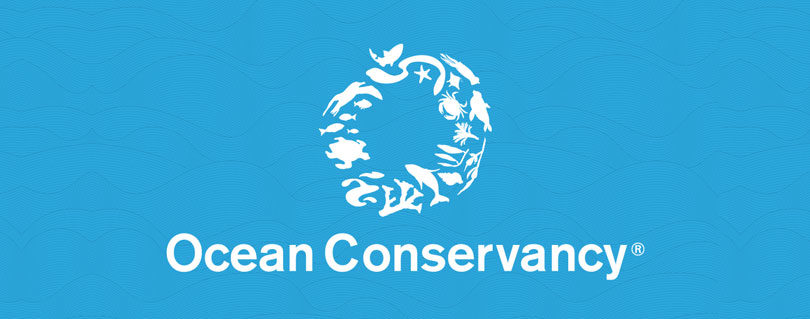Better Choices
Published by Ocean Conservancy
This is a series by Joi Danielson, Senior Fellow at Ocean Conservancy, on her time in the field in Indonesia researching solutions to marine debris.
We hear the slow chanting start. It’s time for Friday afternoon prayers. We pull the car over and half the group goes to temple while the other half, my half of western colleagues, walk to an ice cream stand while we wait. It’s a large horizontal freezer with a door that slides open at the top, locked in place in case someone wants to snatch an ice cream and run. We order chocolate, orange mango, pineapple and chocolate-chocolate. As I peel back the wrapper of my pineapple popsicle, I see it’s been frozen and thawed, frozen and thawed. The sticky, gooey popsicle ice covers the full length of the wooden stick in an unnaturally amorphous shape. I keep the wrapper on as I lick.
The ice cream seller invites us into her living room, which is just on the other side of the ice cream freezer. We take off our shoes and sit on the red vinyl carpet to lick our sticky sweet popsicles in silence. Westerners are still unusual in Muncar, the small town we’re assessing as a potential pilot location to support a zero leakage, circular waste system program. We had spent the morning on a tour documenting plastic waste “leakage hotspots,” areas where intense levels of plastic waste “leak” into the sea. In this coastal town, the beaches, river-ways and gullies were choked full of plastic waste—waiting for the rainy season to come to take it all away, out of sight and out of mind. We saw again what has been affectionately named “Joi’s beach” by the team, because I had noticed it out of the corner of my eye. For our team, it has now come to represent all that is wrong with marine debris. The beach stretches a kilometer long and 10 meters wide, and every bit of it contains thick plastic trash at least six inches deep. Stepping onto this beach, your feet bounce with every crackly step as you compress down hundreds of plastic bags, plastic wrapping and single use sachets. There is not an inch of sand to be seen. This is where low value plastic waste—waste that can’t be sold into local junkshops—goes to die, but because it’s plastic, it never can. It smells of rotting fish and rotting trash. My heart sinks.
As others see us in the ice cream seller’s living room, they start piling in, asking questions as to who we are and why we’re there in their village. We tell them we’re doing research on plastic waste in the ocean. One woman shakes her head. She tells us that the beaches are terrible—that the parents dump their trash in the ocean and teach their children to do so too. I ask her what she does with her own waste. She smiles and says she separates what can be sold to the man who buys the “valuable” waste (i.e., the PET bottles, paper and cardboard, cans and rigid plastics) and everything else she dumps into the water. Here sitting across from me, the woman with the smiling, kind eyes who has graciously invited us into her home, is one of the thousands of faces behind the destruction caused by marine debris. She goes on to say that she used to pay a man 10k IDR a month, the equivalent of $0.75/month, to remove the waste, but he has stopped coming around. She’s not sure if he died or moved to another town, but now there is no one to collect her’s or any of her neighbors’ waste. She asks, “But what must I do?” Her choices are to dump it in the water or land, burn it or bury it. With the water, at least it goes away with the rains. We talk of throwing waste “away.” That great “away” is the ocean.
We need to give her and her neighbors better choices. I am committed to helping cities like hers build circular, zero waste and zero leakage waste systems that collect and recycle all plastic waste, preventing it from entering our seas. Our goal is a cleaner, healthier natural environment for all life. Please join me on this journey.
The post Better Choices appeared first on Ocean Conservancy.
Read the full article at: https://oceanconservancy.org/blog/2017/10/18/better-choices/



